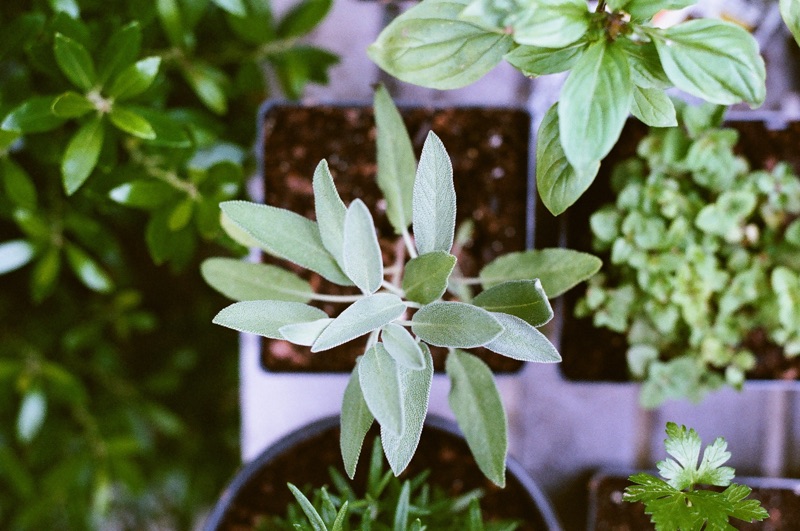God uses only two categories of law to rule His universe:
[1] love to God, and
[2] love to man.
Could there be an extension of these two laws in “ruling” (managing) our gardens? Absolutely! These principles DO apply directly to gardening, as you will see.
GOOD SOIL REQUIRES US TO LOVE GOD
“What does loving God have to do with me being a good gardener?”
For us to “love” anyone is to show gratitude and respect, and puts their needs ahead of our own.
John 15:13 Greater love hath no man than this, that a man lay down his life for his friends.
Then remember where the idea of having a garden first came from.
Gen 2:8 And the LORD God planted a garden eastward in Eden; and there he put the man whom he had formed.
If God was the Creator of the first garden, doesn’t it stand to reason that He also would have had principles to operate the garden successfully? So wouldn’t He want people to tend His garden who would respect those natural laws He set in motion for His plants to thrive and bless all humanity?
Imagine you are raising three little ones, all under the age of 6, and you and your spouse have to be away for the evening without the children for the first time in their lives. Would you want just anyone to care for them? What if you learned of a very responsible teenager, with excellent recommendations? Would that be enough for you to feel relaxed for the evening? Or would it concern you that that person wouldn’t know you or your family routines and no-nos? Just then, as you were about to give up in despair, your older sister, whom you love and respect, calls and offers to take the children for the evening. You know she loves you, understands your family rules, and certainly loves your babies.
If you can sense the relief here, then I think you can better understand why God would want, no, prefer, His children to tend His gardens. In loving Him they would certainly love His Creations, and would care for them by His principles.
GOOD SOIL ALSO REQUIRES US TO LOVE ONE ANOTHER
“Wait a minute! I can see now why we might need to love God, but how does loving man improve my gardening success?”
We can’t expect good if we don’t respect God. And respect goes beyond the Person. It includes everything that Person identifies with. Who is it that God identifies with? The rich? The powerful? The strong and healthy?
Mat 25:35-36 For I was an hungred, and ye gave me meat: I was thirsty, and ye gave me drink: I was a stranger, and ye took me in: naked, and ye clothed me: I was sick, and ye visited me: I was in prison, and ye came unto me.
If we see ourselves as God’s stewards of the garden, and truly love Him, then we will also love those He is concerned about, and that will affect our gardening! The plants, that represent these people, will receive our most delicate touch, our fondest care, our greatest concerns, as will those who carry the heaviest burdens of life.
Look at what God uses to bless others. They are not usually the polished, educated, immaculate, or affluent.
- Dumb donkeys (Numbers 22:21-33)
- Raucous ravens (1Kings 17:4-6)
- Second-class Samaritans (Luke 10:30-36)
- Simple servants (2Kings 5:2-3)
- Gargantuan gourds (Jonah 4:6)
- Fooled fish (Matt 17:27)
In fact, lest we miss His point, He speaks more clearly through His Word:
1Co 1:27-28 But God hath chosen the foolish things of the world to confound the wise; and God hath chosen the weak things of the world to confound the things which are mighty; [28] and base things [ignoble, without known descent] of the world, and things which are despised, hath God chosen, yea, and things which are not, to bring to nought things that are:
“Excuse me again. Aren’t we supposed to be talking about gardening?”
Absolutely! In order to be a good gardener, we must be willing to get close to those things that are despised, foolish, weak, and even of questionable origin, to help God’s plants grow strong. These are the things God says He likes to use to build up His church (or garden, if you please—see Exodus 15:17). This includes yucky worms, despicable bacteria, smelly compost, appalling fungi, to name a few.
In short, good gardeners must be willing to do whatever it takes to make up for the weaknesses of God’s plants.
- Provide whatever shelter is necessary
- Attend to their soil servants’ needs (those who actually feed and water the plants)
- Have your care characterized more by generosity than niggardliness
- Treat the cause of disease rather than uproot the infirmed.
In so doing good gardeners will become good neighbors.
SOIL, SEEDS, AND FAITH
Good ground is not necessarily perfect soil. It is soil that is able to help plants grow to their capacity. Though there are many factors that affect plant growth, good soil is a very important one. In one parable it made productivity possible for the seed, and the productivity varied.
Mat 13:8 But other fell into good ground, and brought forth fruit, some an hundredfold, some sixtyfold, some thirtyfold.
Mat 13:23 But he that received seed into the good ground is he that heareth the word, and understandeth it; which also beareth fruit, and bringeth forth, some an hundredfold, some sixty, some thirty.
You notice that the soil here is compared to those who HEAR and UNDERSTAND the word. In other words, there is an INTELLIGENCE present. And intelligence requires life. We cannot have good soil without some kind of life in it to minister to the seed. And the result of that “ministry” is fruitfulness.
In the 25th chapter of Matthew we read another parable about productivity and soil (14-30). Three servants were invested with different amounts of their master’s wealth before he left for a far country. It was made clear that the reason for the differences in trust was according to their “several ability”. In other words, the master was aware of his servants’ capabilities. When he returned “after many days” they were interviewed to see what they did with their trust.
Notice what happened. Though two of the servants had showed fruitfulness and doubled their talents, one hadn’t. Though he did put his in the ground, it was not treated as seed. His intent was to neither grow nor depreciate the gift, but to return it in its original condition. If it were a seed, it would have had to be in a sealed container, making the good soil ineffective. This underscores the need for the seed to come in contact with the good soil.
Now let’s consider one more parable Matthew brings into the mix. Here (17:20) Jesus compares seed to faith. Remember seed grows best when it is put into contact with good ground, a receptive heart that hears and understands. And when these two are put together, there will be fruitfulness. But Jesus tells us how that seed can be kept from contacting the soil, and the problem is NOT with the seed..
Mat 13:15 For this people’s heart is waxed gross [thickened, fattened, calloused, made stupid], and their ears are dull of hearing [hear with difficulty], and their eyes they have closed; lest at any time they should see with their eyes, and hear with their ears, and should understand with their heart, and should be converted, and I should heal them.
To hear: to consider what is being or has been said; to perceive the sense of what is said. This is an activity of the logic center of the brain. So good soil must have an organic factor with perceptive ability for the seed and plants put in them. We can interfere with the “hearing” of the microorganisms in the soil by overwatering, unbalanced pH, and other things.
To understand: to put (as it were) the perception with the thing perceived; to set or join together in the mind. This is a function, Jesus says, of the heart (vs 15). So the living factor in good soil must not only be able to perceive the presence of the seed or plant, but also be able to connect its presence with its needs and provide for them via the inorganic nutrients in the soil. As with humans, drugs interfere with this understanding. Drugs are equivalent to toxic chemicals that can bring confusion to these organisms
If faith is like a seed, then it has heavenly elements of life within it that must come in contact with earthly elements of life before it can become fruitful. Yes, faith can “sprout” with the least amount of water, but it cannot endure and become fruitful without being rooted in one’s receptive heart (good soil). Just because God has given every person “a measure of faith” (Romans 12:3), that doesn’t mean the faith is active (as in the case of the third servant mentioned above). Or what they may have thought was (heavenly) faith may prove to be a bogus faith (no divine life in it) when the elements of the heart try to help it to sprout. Gardeners know about this when they return to their garden some days after planting the seed, only to see bare soil staring expectantly back at them. Some people will find out too late that the “faith” that they believed in so strongly was a counterfeit. Their “many wonderful works” were confined only to the spiritual realm (nothing practical). Their faith was never connected with the “lower elements” of good soil ecology to help it produce fruit.
Mat 7:22-23 Many will say to me in that day, Lord, Lord, have we not prophesied in thy name? and in thy name have cast out devils? and in thy name done many wonderful works? And then will I profess unto them, I never knew you: depart from me, ye that work iniquity.
HOW DOES HYDROPONICS FIT IN?
In all this we see the living soil working for the gardener. And Genesis 1:9 says the soil (the “dry”) is to be distinguished from the waters.
Hydroponics is growing land plants in water only, or in specially prepared water with rocks or some other inert material. In other words, MAN provides the intelligence that the good soil would supply, making him and his inventions the focal (glory) point. The question that arises in my mind is, Does man have more intelligence in meeting the needs of the plant than the life forms God created for that purpose? I highly suspect the tradeoff for convenience (and glory?) is not in the consumer’s favor.
THE LOVE FACTOR
When it comes to relationships, self is the most toxic element on this earth. One drop of it in a barrel of love can kill a relationship in a heartbeat. Selfishness and self-centeredness are love’s counterfeits. Whenever we express “love” to someone with the intent of receiving personal advantage or benefit, that expression has been corrupted.
Actually, to truly “love” God or someone else is not really in the capacity of a fallen nature.
Jer 17:9 The heart is deceitful above all things, and desperately wicked: who can know it?
So how is it that we can even fulfill the most basic rules of love?
We are in desperate need of a higher power in order to break the bonds of self-interests. So until we get to the level of the publican, we can make no progress. Remember, he’s the one who prayed, “God, be merciful to me a sinner!” (Luke 18:13).
1Co 13:4-8 CEV Love is kind and patient, never jealous, boastful, proud, or rude. Love isn’t selfish or quick tempered. It doesn’t keep a record of wrongs that others do. Love rejoices in the truth, but not in evil. Love is always supportive, loyal, hopeful, and trusting. Love never fails!
We hear this echoed in the experience of God’s love for His people. The Father gave us the greatest gift, His only begotten Son, the most beloved portion of Himself. Jesus came to be with us, to help us understand what truth and love are all about. And Their greatest joy is to have us be with Them.
John 3:16 For God so loved the world, that he gave his only begotten Son, that whosoever believeth in him should not perish, but have everlasting life.
John 14:3 And if I go and prepare a place for you, I will come again, and receive you unto myself; that where I am, there ye may be also.
When we become the recipients of God’s love and His channel to reach others, then we are truly qualified to become good gardeners.
- The gardener will love to be with his/her plants, and, as I have learned, the plants will respond positively to that presence.
- The gardener will care for his/her plants at any expense to him/herself.
- The gardener’s greatest joy is to present to others the beautiful and luscious and abundant fruit of his/her garden.
That, my friend, is what results when good seed is connected with good soil.






